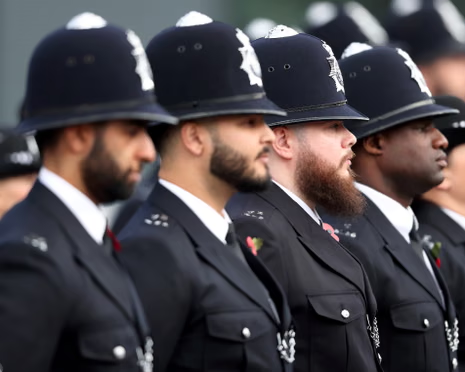The ongoing debate over fairness and inclusivity in policing has once again taken center stage in the UK, as Black police officers warn that new proposals could potentially silence minority voices within the force. The issue, which has sparked nationwide discussion, raises concerns about how institutional policies may unintentionally undermine representation and diversity in one of the country’s most scrutinized public services.
The Background of the Controversy
The proposals, still under review, are designed to regulate how police staff participate in external forums and political debates. Critics, however, argue that the rules could discourage officers from speaking openly about racial bias, discrimination, and reforms needed within the justice system. For Black officers and those from other minority groups, such restrictions could reduce already limited opportunities to highlight systemic challenges.
Concerns from Black Officers’ Associations
Black Police Associations (BPAs) across the UK have voiced strong concerns. Leaders warn that imposing tighter restrictions on how officers engage publicly may create a chilling effect, where minority officers feel unsafe sharing their experiences or advocating for fair treatment. According to them, the move risks undoing years of progress made in encouraging more inclusive voices within law enforcement.
One senior representative commented, “Policing is at a crossroads. If minority officers cannot express their perspective, we lose essential insights into how policies impact communities most affected by policing practices.”
Why Representation Matters
Policing in Britain has long struggled with diversity gaps. According to Home Office statistics, Black officers account for less than 2% of the police force, despite Black communities making up over 4% of the population. That underrepresentation has raised ongoing concerns about fairness in recruitment, promotion, and workplace culture.
Allowing officers to share their views—whether through internal boards, external conferences, or public forums—has been seen as crucial to building trust with minority communities. Without these voices, critics say, the police risk appearing disconnected from the very public they serve.
Government and Policing Bodies’ Response
Officials from the Home Office have defended the proposals, stating they are meant to safeguard neutrality and ensure officers do not appear politically aligned. They stress that the new framework is about maintaining public confidence rather than silencing debate.
However, campaigners argue that “neutrality” should not mean ignoring lived experiences. For many, the fear is that legitimate conversations about race and bias will be branded as “political,” thereby discouraging officers from engaging altogether.
Wider Implications for Policing Trust
The UK has witnessed several high-profile controversies involving policing and race in recent years, from stop-and-search practices disproportionately targeting Black people, to the handling of racially motivated crimes. If minority officers feel unable to speak candidly, it could worsen mistrust between police forces and marginalized communities.
Community leaders have highlighted that transparency and inclusion are vital for progress. They argue that silencing minority voices risks deepening divisions rather than fostering solutions.
Calls for Rethinking the Proposals
As the debate continues, activists and policing experts are calling for revisions. Suggestions include clearer protections for officers who engage in diversity-focused discussions, and explicit exemptions for speaking on issues of equality and representation.
A compromise may be needed: one that balances the importance of political neutrality with the right for officers to highlight systemic injustices.
Conclusion
The controversy highlights a broader truth about UK policing: diversity is not just about numbers, but about voices being heard. If minority officers lose the ability to speak openly, then the fight for fair, representative policing suffers a setback. Whether the proposals are amended will reveal much about the future direction of inclusivity in British law enforcement.



